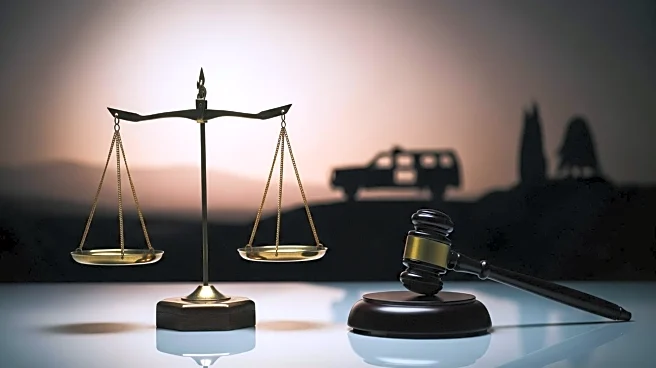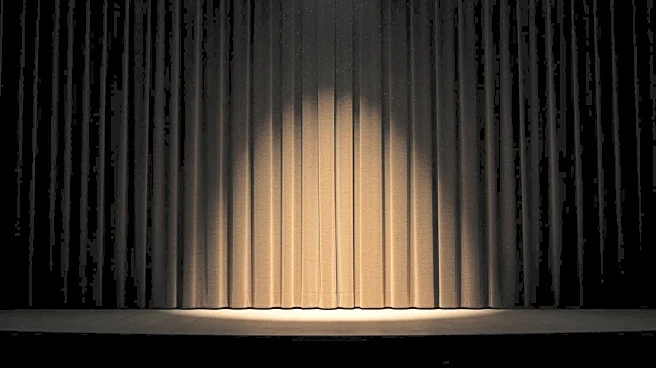What's Happening?
Michele Beckwith, a veteran prosecutor and acting U.S. attorney in the Eastern District of California, was dismissed from her position after advising the Border Patrol chief in charge of immigration raids in California to adhere to a court injunction. The injunction, resulting from a lawsuit by the American Civil Liberties Union and United Farm Workers, prohibited indiscriminate immigration raids in the region. Beckwith had informed Gregory Bovino, chief of the Border Patrol’s El Centro Sector, that his agents were not allowed to arrest individuals without probable cause in the Central Valley. Despite her warnings, Beckwith was terminated shortly after communicating the legal constraints to Bovino. Her dismissal marks the end of a 15-year career with the Department of Justice, where she held significant roles, including Criminal Division Chief.
Why It's Important?
The firing of Michele Beckwith underscores the tension between federal law enforcement agencies and judicial oversight, particularly in the context of immigration enforcement. This incident highlights the challenges faced by legal professionals who attempt to uphold court orders against aggressive enforcement tactics. The broader implications include potential impacts on the rule of law and the independence of the judiciary, as well as the operational conduct of federal agencies. The situation also reflects the ongoing debate over immigration policies and enforcement practices in the U.S., with significant consequences for civil liberties and community relations, especially in immigrant-rich areas.
What's Next?
The dismissal of Beckwith may prompt further scrutiny of the Department of Justice's handling of immigration enforcement and its adherence to judicial rulings. Legal and civil rights organizations might increase their advocacy efforts to ensure compliance with court orders. Additionally, there could be political ramifications, as lawmakers and public officials react to the perceived overreach by federal agencies. The situation may also lead to increased calls for oversight and accountability within the Department of Homeland Security and its associated agencies.
Beyond the Headlines
This development raises questions about the ethical responsibilities of federal prosecutors and the potential consequences they face when challenging enforcement practices. It also highlights the cultural and legal tensions within the U.S. regarding immigration policy and the balance between national security and individual rights. The case may serve as a precedent for future legal battles over the limits of federal authority and the protection of constitutional rights.









